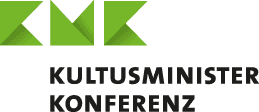

The Kultusministerkonferenz (KMK) coordinates the education and cultural policy of the federal states. It sets standards, promotes quality and mobility in education, and is engaged internationally. The
Sign up for free.

The Conference of Ministers of Education (KMK) is a central coordinating body of the ministers responsible for education, upbringing, universities, research, and cultural affairs from the federal states in the Federal Republic of Germany. Since its founding in 1948, the states have been working together in a self-coordinating manner to set common goals and standards in the education sector.
The main mission of the KMK is to secure the highest possible level of mobility for learners, students, teachers, and researchers through consensus and cooperation, and to contribute to the equivalence of living conditions throughout Germany. The KMK represents and promotes the common interests of the states in the field of culture.
The Sekretariat der Kultusministerkonferenz, with locations in Berlin and Bonn, is led by the Secretary General. It prepares plenary, committee, and commission meetings and is responsible for evaluating and implementing the results of consultations. The expenses of the secretariat are borne by all 16 states according to the Königssteiner key[3].
The Conference of Ministers of Education is a central element of German education policy, contributing to shaping education in Germany in a future-oriented and sustainable manner through cooperation, quality assurance, and innovative strategies.